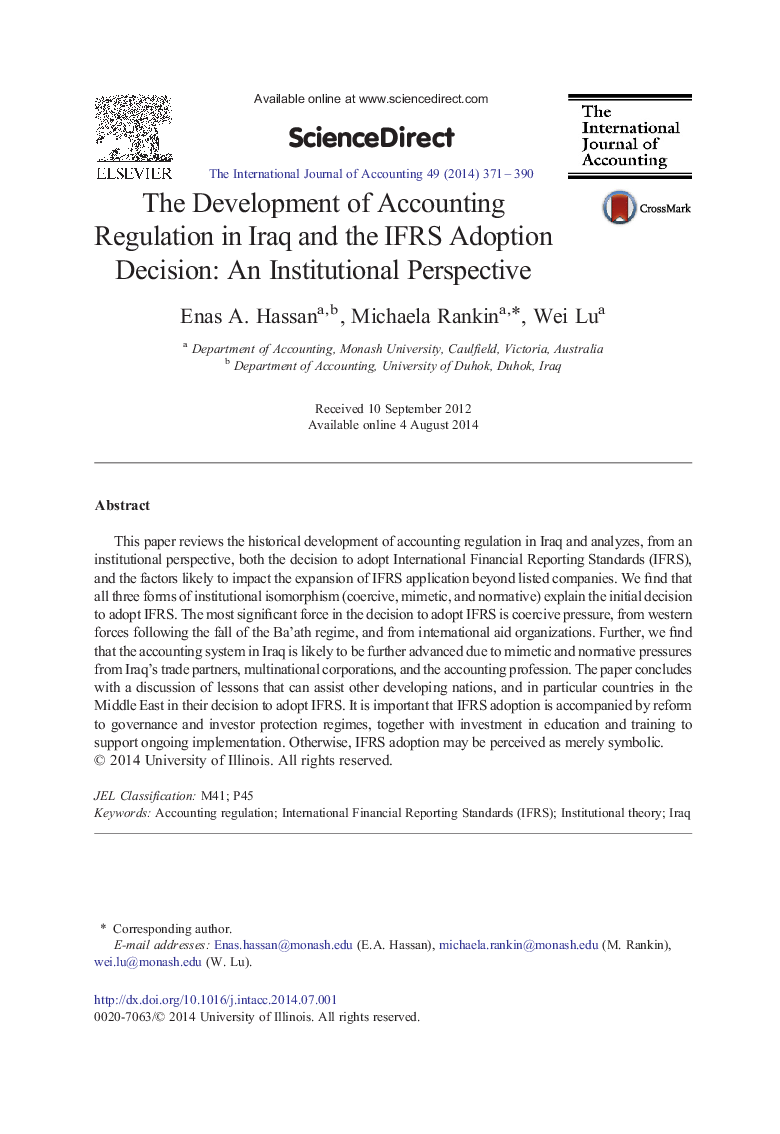| Article ID | Journal | Published Year | Pages | File Type |
|---|---|---|---|---|
| 1004921 | The International Journal of Accounting | 2014 | 20 Pages |
This paper reviews the historical development of accounting regulation in Iraq and analyzes, from an institutional perspective, both the decision to adopt International Financial Reporting Standards (IFRS), and the factors likely to impact the expansion of IFRS application beyond listed companies. We find that all three forms of institutional isomorphism (coercive, mimetic, and normative) explain the initial decision to adopt IFRS. The most significant force in the decision to adopt IFRS is coercive pressure, from western forces following the fall of the Ba'ath regime, and from international aid organizations. Further, we find that the accounting system in Iraq is likely to be further advanced due to mimetic and normative pressures from Iraq's trade partners, multinational corporations, and the accounting profession. The paper concludes with a discussion of lessons that can assist other developing nations, and in particular countries in the Middle East in their decision to adopt IFRS. It is important that IFRS adoption is accompanied by reform to governance and investor protection regimes, together with investment in education and training to support ongoing implementation. Otherwise, IFRS adoption may be perceived as merely symbolic.
